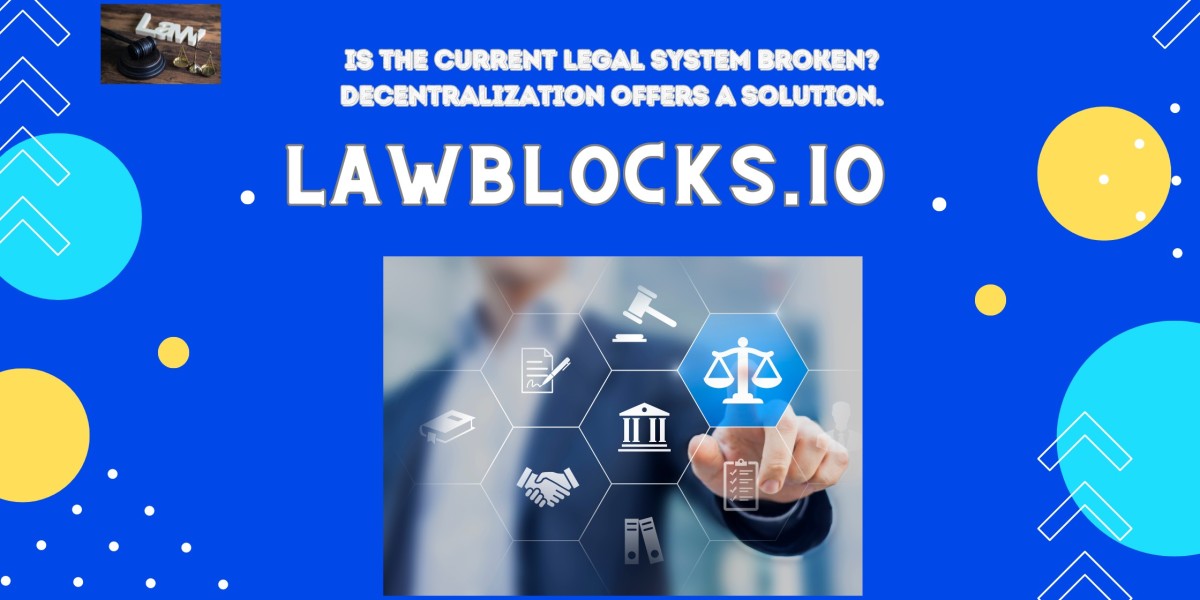The legal system, once a symbol of order and justice, is facing growing criticism. Many perceive it as slow, expensive, and inaccessible, often favoring the wealthy and powerful. But what if there was a way to revolutionize the legal landscape, making it faster, fairer, and more accessible to everyone? Enter the concept of a decentralized legal system, powered by blockchain technology.
The Cracks in the Legal Foundation:
Let's delve into some of the challenges plaguing the current legal system:
Costliness:
Legal fees can be astronomical, putting justice out of reach for many individuals and small businesses.
Inefficiency:
The legal process can be agonizingly slow, with cases languishing for years before resolution.
Lack of Transparency:
The complexities of legal proceedings can leave participants feeling confused and frustrated.
Accessibility Issues:
Geographic limitations and language barriers can create hurdles for those seeking legal assistance.
Potential for Bias:
Concerns linger about bias within the traditional legal system, hindering equal access to justice.
These issues chip away at public trust in the legal system. Decentralization, with its core principles of transparency, accessibility, and security, offers a glimmer of hope for positive change.
Decentralized Justice: A Paradigm Shift
Decentralized legal systems leverage blockchain technology to create a more efficient and equitable legal landscape. Here's how it works:
Distributed Ledger:
Legal records and contracts are stored on a secure, distributed ledger, accessible to authorized users across a network. This eliminates the need for centralized control and reduces the risk of manipulation.
Smart Contracts:
These self-executing contracts leverage blockchain technology to automate certain legal processes when predefined conditions are met, streamlining agreements and reducing the need for human intervention.
Dispute Resolution Platforms:
Decentralized platforms can be created to facilitate dispute resolution through alternative methods like mediation and arbitration, potentially offering faster and less expensive solutions.
Benefits of a Decentralized Legal System
By embracing decentralization, we can potentially unlock numerous benefits:
Cost Reduction:
Eliminating intermediaries and automating processes could significantly reduce legal fees.
Increased Efficiency: Blockchain technology can streamline workflows, leading to faster dispute resolution.
Enhanced Transparency:
All participants can view the legal record on the blockchain, fostering greater clarity and trust.
Improved Accessibility:
Decentralized platforms can be accessed globally, removing geographical barriers to legal services
.
Reduced Bias:
Blockchain's inherent transparency can potentially mitigate bias by creating a neutral and verifiable record.
Challenges and Considerations
While the potential of decentralized legal systems is exciting, it's important to acknowledge the challenges:
Regulation and Standards:
Developing clear regulations and standards for the operation of decentralized legal systems is crucial for ensuring their effectiveness and legitimacy.
Technology Adoption:
Widespread adoption of decentralized legal systems will require a shift in mindset and increased technological literacy among legal professionals and the public.
Integration with Existing Systems:
Integrating decentralized legal systems with existing legal frameworks will be essential for ensuring a smooth transition.
The Road to Decentralized Justice
The path toward a fully decentralized legal system is likely long and winding. However, the potential benefits are undeniable. By fostering innovation and collaboration, we can continue to explore the possibilities of blockchain technology and address existing challenges.
Conclusion:
Tired of the high cost and slow pace of the traditional legal system? Law Blocks offers a revolutionary solution: a decentralized legal system built on blockchain technology. Decentralization is not about replacing the legal system entirely. Instead, it offers a chance to create a more efficient, transparent, and accessible legal landscape that complements existing structures.
As technology evolves and public awareness grows, decentralized legal systems have the potential to empower individuals and businesses, fostering a more just and equitable legal future. The question is not whether the current legal system needs improvement, but how we can leverage innovation to build a better system for all.








